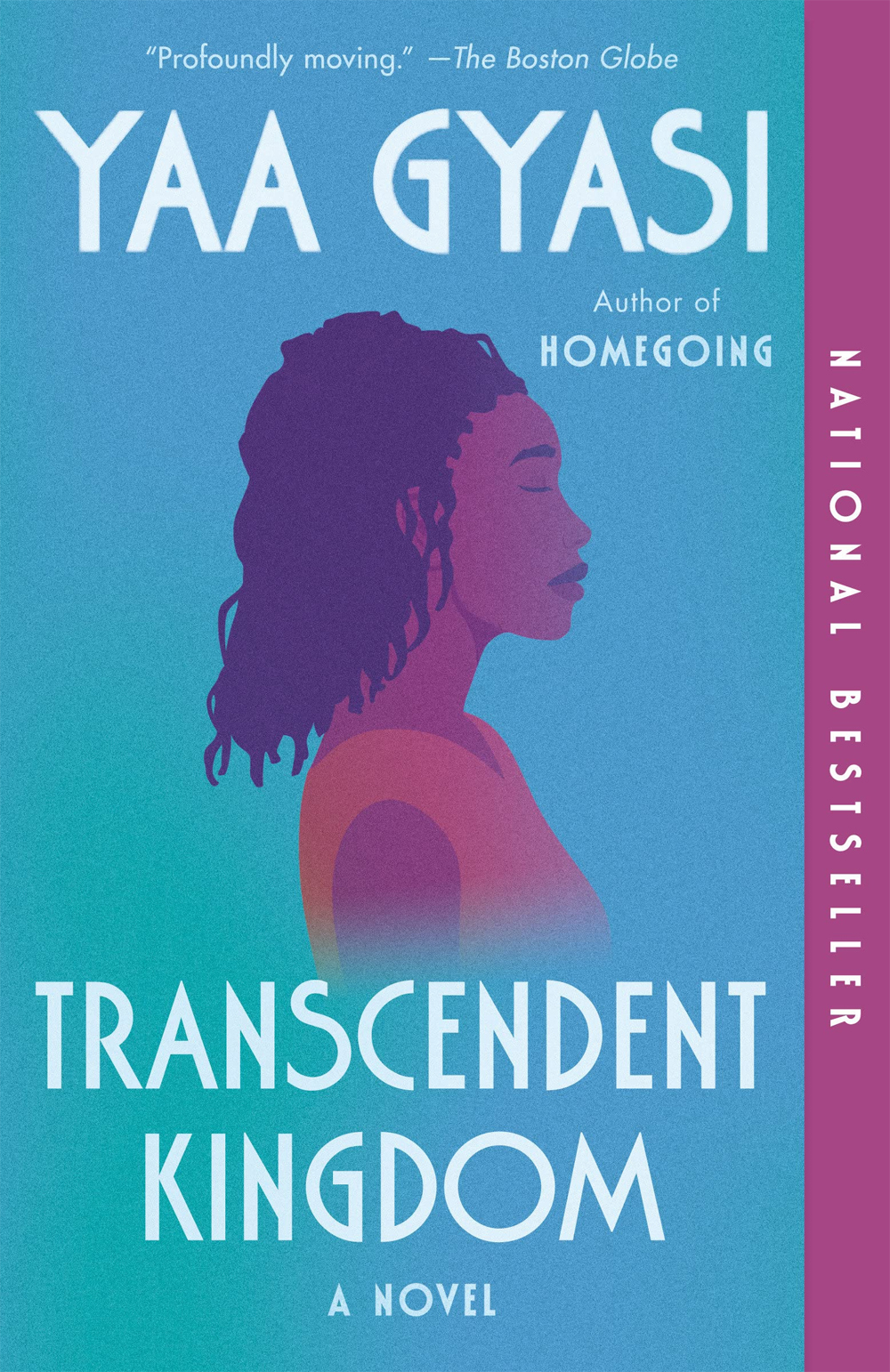 Transcendent Kingdom
Transcendent Kingdom (2020) by Yaa Gyasi is the story of 28-year-old Gifty, a graduate student at Stanford working towards her Ph.D. in neuroscience. The story flits back and forth in time from the present day to memories of Gifty’s childhood and college days.
Gifty grew up in Alabama with her mother, father, and older brother Nana. Her parents immigrated to the United States from Ghana when Nana was young. Gifty’s father faces racism in the US and struggles to find work, and eventually he abandons his family to return to Ghana. Gifty’s mother works long hours as a caregiver and is a devoted member of her church.
Gifty is a quiet, studious young girl who wants to be good and writes to God in her diary. Her brother Nana is popular, outgoing, and good at sports. In high school, Nana becomes a star basketball player. Sadly, Nana’s basketball successes end when he injures his ankle and is prescribed OxyContin. Nana becomes addicted and dies of a heroin overdose. Gifty is 11 years old at the time. Her mother sinks into a deep depression and attempts suicide. During her mother’s recovery, Gifty is sent to Ghana to spend a summer with her aunt. Later, Gifty attends Harvard where she studies molecular biology. Before she heads to Cambridge, Gifty decides to reinvent herself and leave her past behind her.
In the present, Gifty is researching addiction and reward-seeking behavior in mice. She grows attached to an injured lab mouse with a limp. While Gifty denies that her life experiences led her to study the neuroscience of addiction, she’s not being honest with herself. It seems to me that she’s attached to the mouse because its injury is like her brother’s. The mouse also displays signs of addiction in Gifty’s experiments. When Gifty’s mother suffers from another depressive episode, Gifty’s family pastor calls her. She asks the pastor to fly her mother to California where Gifty will care for her.
In the past, Gifty has had trouble with relationships. She purposely destroyed a meaningful relationship with Anne in college when Anne tried to learn more about Gifty’s family. Gifty quite cruelly cut Anne out of her life entirely. Later, Gifty is involved with Raymond during her first years of grad school, and when he tried to get more serious and talked about meeting her family, Gifty sabotaged their relationship.
In the present day, Gifty is struggling to care for her mother while doing her final experiments and writing a paper. When her classmate Han notices her crying, they grow a little closer, and Gifty eventually tells him about her brother. She also begins to trust another colleague named Katherine, and Gifty tells Katherine about her mother. These small steps indicate some form of healing and newfound willingness to begin sharing her past with others.
Gifty’s final experiments are successfully. When Gifty alters the brain activity of the limping mouse, it restrains itself from seeking reward. At last, Gifty has an answer that she’s long been seeking. She reflects on her discovery in the passage below:
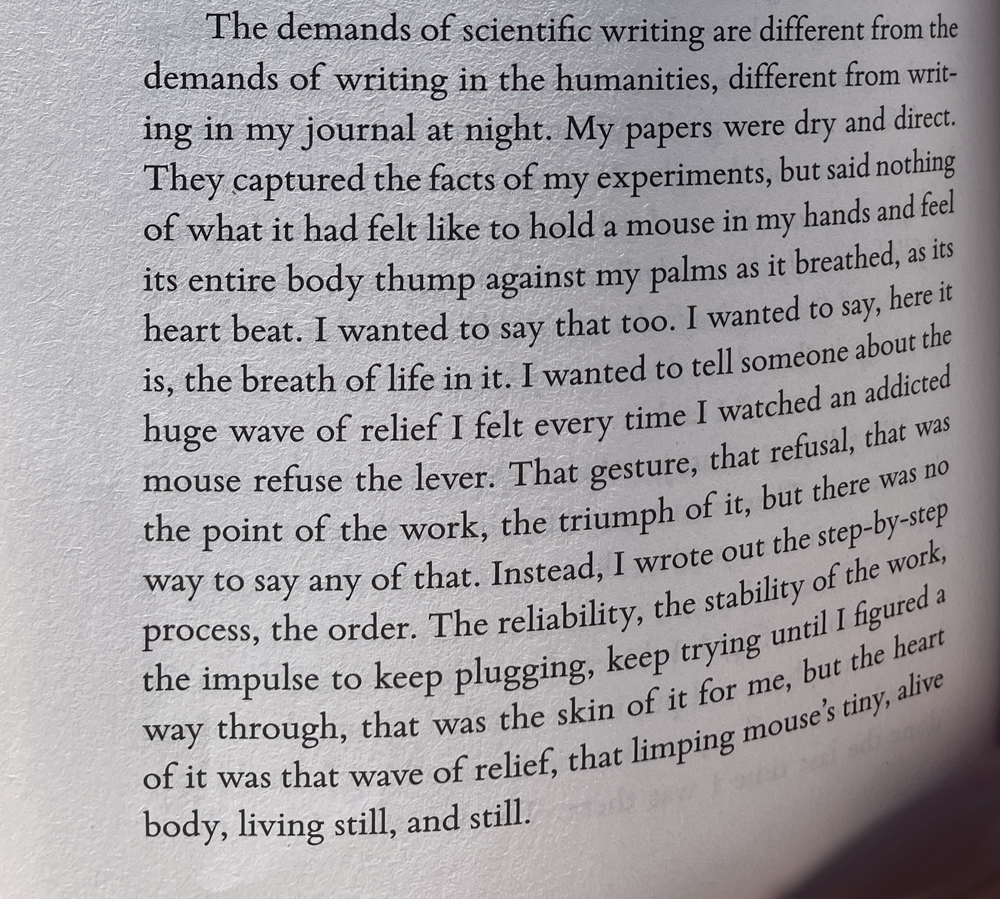
The end of the novel is abrupt. There’s a quick afterward to let the reader know that Gifty succeeds in life and that she has a prestigious job running a lab at Princeton and a happy relationship and home with Han. Her mother died in her own home. It was somewhat dissatisfying that there was such a gap in information about how this comes about in the arc of the Stanford narrative. Han and Gifty have planned to go out to dinner, but their early relationship is not well established for the reader. There’s also no explanation of how Gifty’s mother recovers to return home. The novel spends more time in the past than in the present day.
One of the strangest things in reading the novel for me was all the similarities I shared with Gifty. I too studied molecular biology, and I got my Ph.D. doing neuroscience research on addiction. I have an immigrant family. Long ago, my boyfriend-now-husband and I had a print and online magazine with the name “Transcendental Deliverance.” I made the same triangular move around the US as Gifty from the South to the Northeast to the West coast. Some of the minor anecdotes even rang true to me. Once, like Gifty, I avoided a man who was creeping me out by hiding in my campus library until I was sure he was gone. I found these similarities so curious and strange.
I was glad to read this story, and I really enjoyed Gifty’s voice and reflections.
Purchase and read books by Yaa Gyasi:
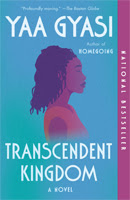

©
penciledpage.com










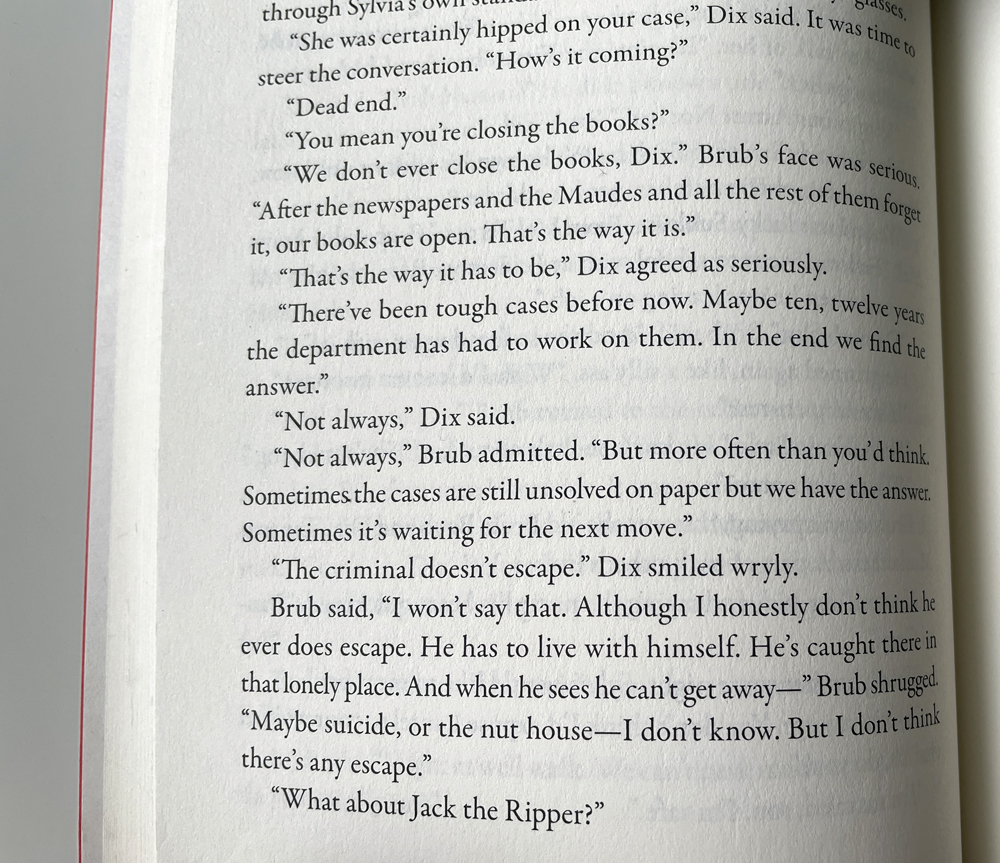
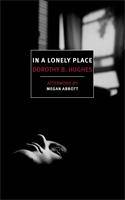





Search This Website